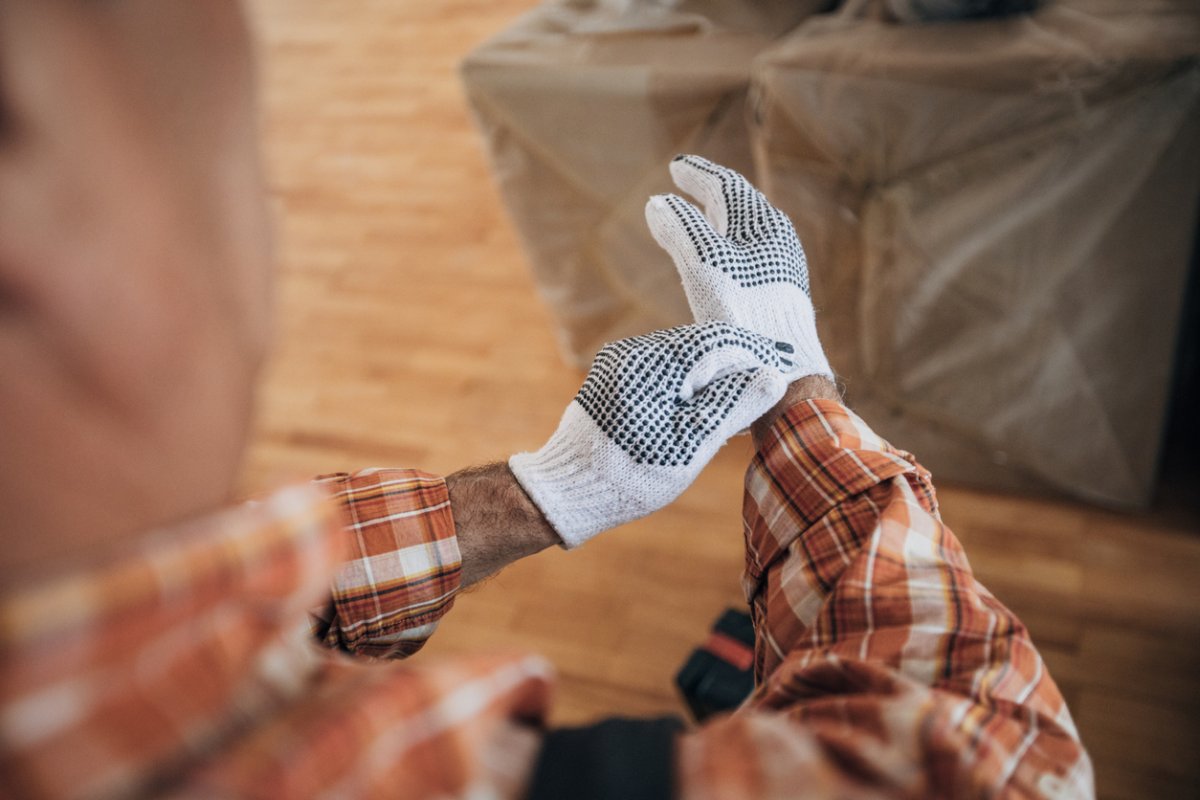

We may earn revenue from the products available on this page and participate in affiliate programs. Learn More ›
While donning a pair of gloves before cleaning or starting a DIY project might not be the quickest way to get started, it can be important. Gloves can help protect your hands—and your body—against a number of hazards, including chemicals, viruses, bacteria, and injury. Rather than reaching for just any pair of gloves, however, make sure you have the right gloves for the task.
There are several types of gloves, each suited for different types of jobs. For example, disposable latex and nitrile gloves offer a more precise fit, making them a good choice when working with smaller items. They can also protect against chemicals and oils. However, if you’re looking for a barrier to protect your skin from getting punctured as you work, a pair of work gloves might be the better choice. Read on to learn more about when you should wear gloves and which types of gloves are best for various cleaning and DIY tasks.
1. Clean the Toilet
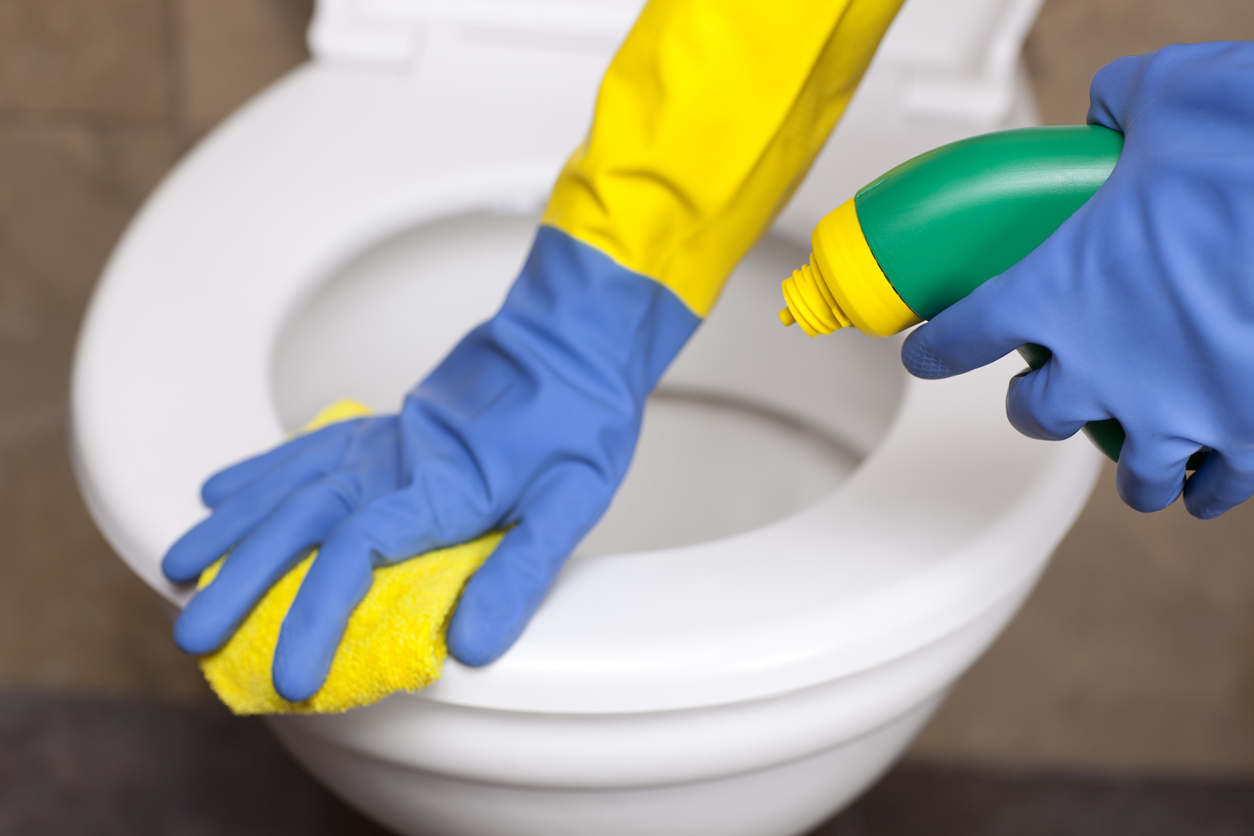
Toilets can harbor bacteria, viruses, and other germs. For this reason, it is really important to wear gloves when cleaning the toilet to prevent the spread of these germs. In addition to the germs that could be present on or in the toilet, the toilet bowl cleaner you’re using might contain harmful chemicals that you won’t want to get on your hands. Rather than using a pair of reusable gloves for this cleaning task, it might be better to use disposable latex or nitrile gloves, like these hypoallergenic nitrile gloves on Amazon, the top pick in our list of best disposable gloves for the home. This way, you won’t need to try to sanitize the gloves after cleaning the toilet.
RELATED: How to Clean a Toilet the Right Way (Yes, There’s a Right Way)
2. Wash the Dishes
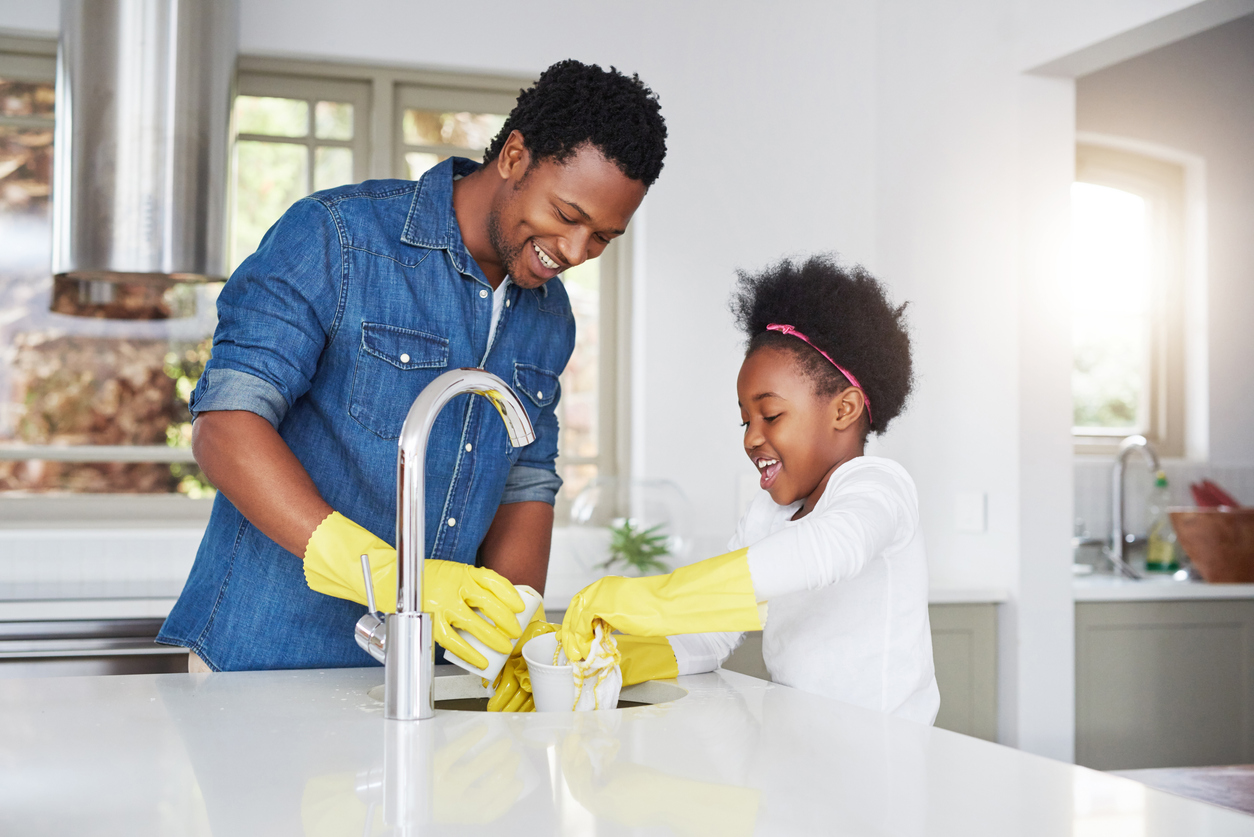
Unless you’re just giving one plate a quick rinse, you should also wear gloves when washing dishes. The gloves will help protect your skin from the hot water, which can strip away the oils in your skin that keep it moist. Moreover, wearing gloves will also help protect your skin from being irritated by the cleansers or soaps you’re using.
If you still need reasons to consider wearing gloves when washing dishes, then do it for your health. The kitchen sponge is one of the dirtiest things in the home, so you’ll want to avoid accidentally transferring bacteria or pathogens to yourself or other kitchen surfaces. Look for a pair of rubber or silicone gloves, like these PVC cleaning gloves with touchscreen-friendly fingertips, so you can answer any calls you might get while cleaning up after dinner.
RELATED: 12 Smart Dish Washing Hacks No One Ever Taught You
3. Garden
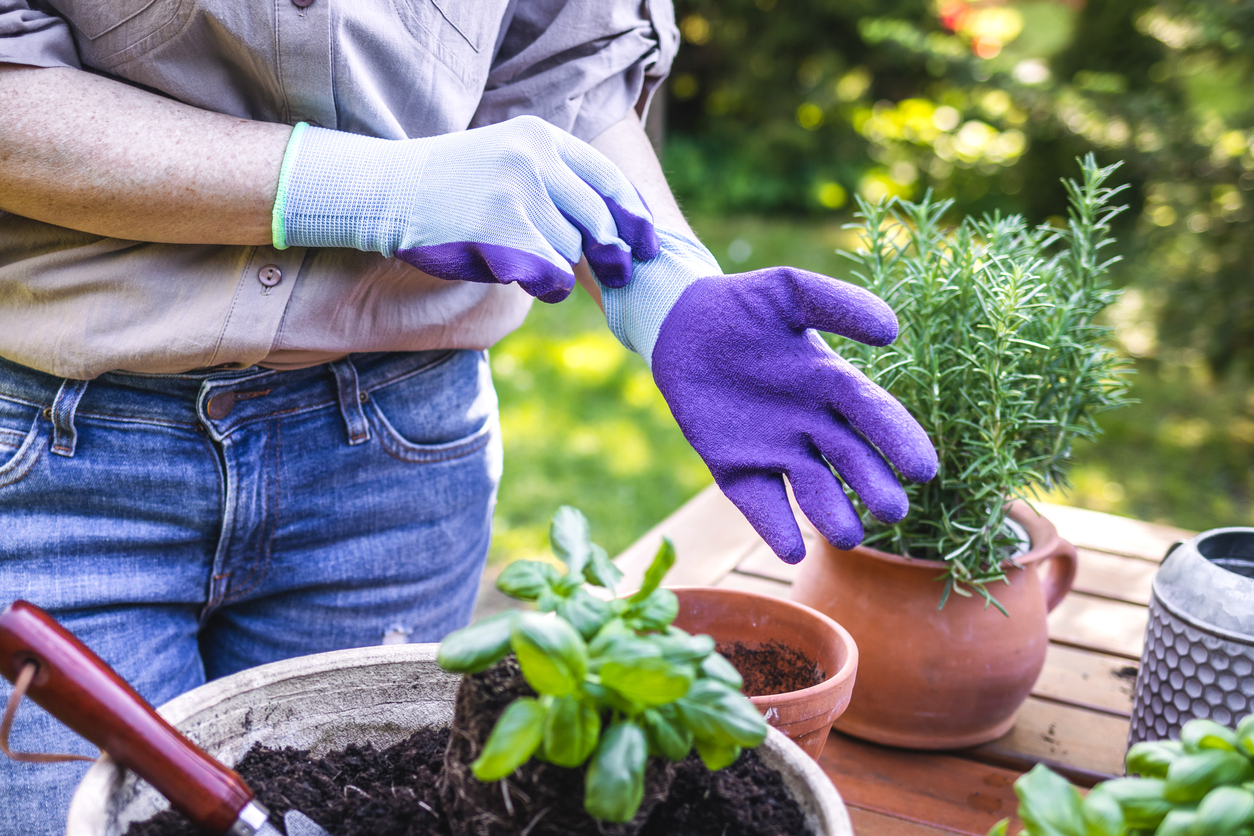
Before heading out to work in the garden, you should also put on a pair of gloves. In addition to protecting your hands from punctures from weeds, roses, and other items in the garden, gardening gloves can protect you against diseases and infections. For example, a species of legionella found in potting mix is responsible for approximately half of the Legionnaire’s cases in the country. Bacteria and fungi found in soil can cause other problems, too, such as sepsis or sporotrichosis. We like these rose-pruning thornproof gloves, which were voted best for thorns in our roundup of best editor-tested gardening gloves.
4. Take Food Out of the Oven

You would never take food out of a hot oven without protection, but do you really need a pair of oven mitts? Well, yes. Pot holders can offer some protection, but they don’t cover the back of your hand and won’t protect it if it brushes against a hot oven rack. These extra-long silicone oven mitts will protect you against painful and potentially severe burns on all sides.
RELATED: How to Clean an Electric Oven
5. Clean the Litter Box
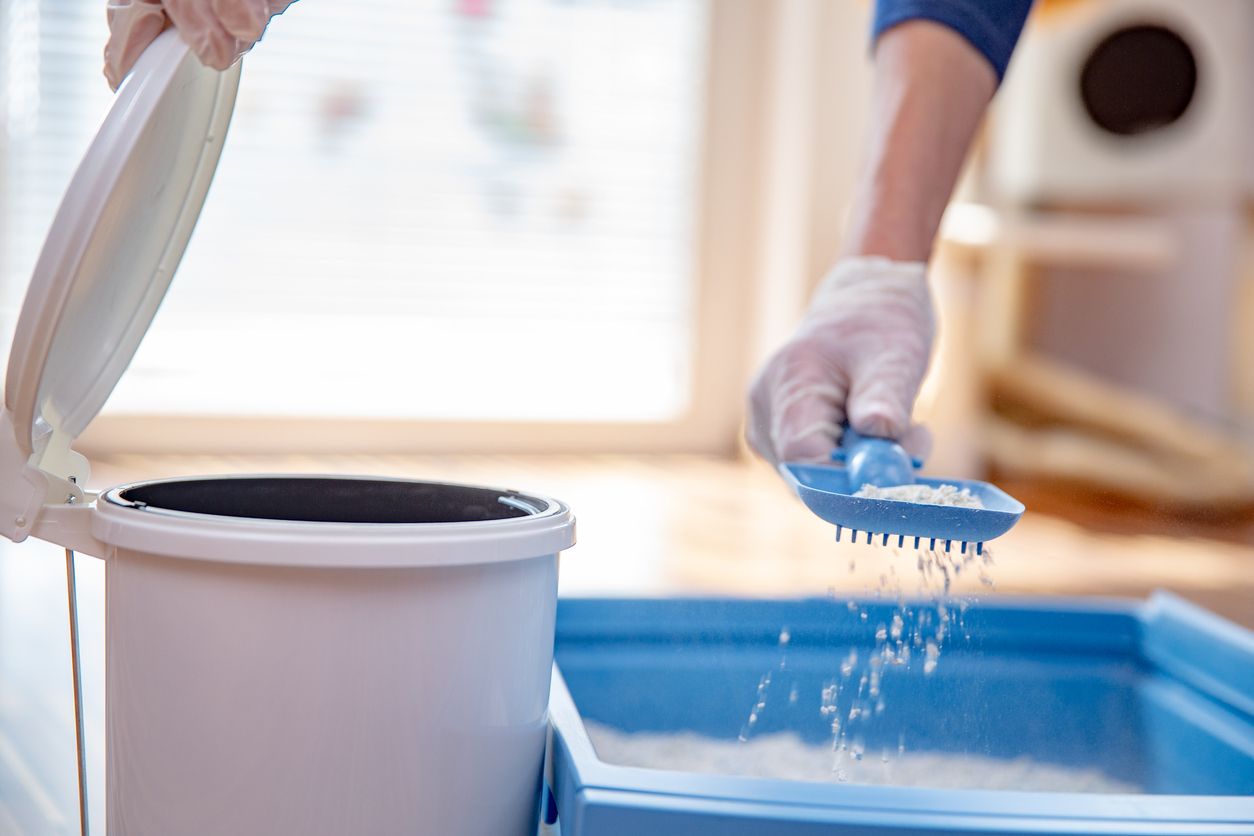
If you have a feline friend or two, put on a pair of gloves before cleaning their litter boxes. In some cases, humans can contract toxoplasmosis after coming into direct contact with a cat’s waste. While this isn’t a huge concern for most people, it can be very serious for pregnant women or any individuals with a weakened immune system. When cleaning kitty’s box, opt for rubber gloves or disposable latex gloves.
6. Electrical Work
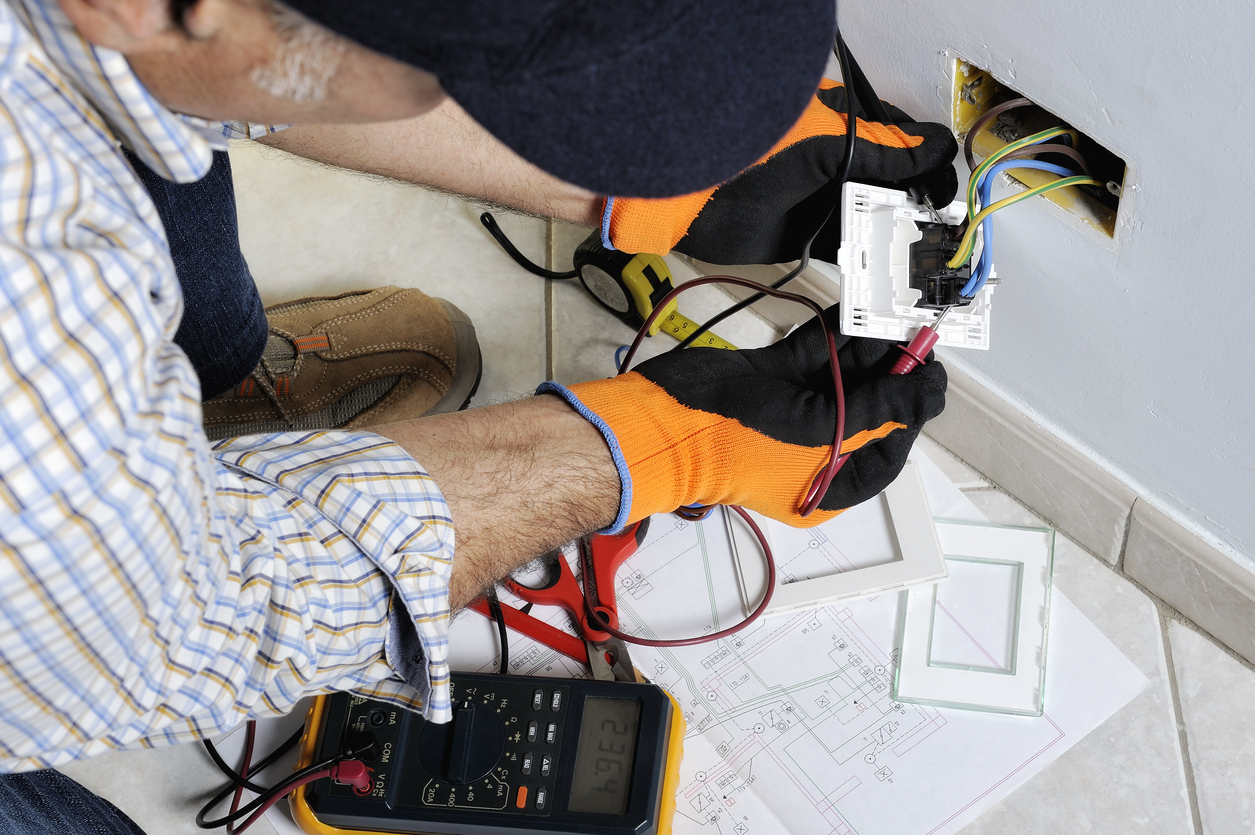
Are you planning any electrical work? If so, you’ll want to make sure you’re prepared with a pair of electrical gloves before starting your project. Rubber insulated gloves, like these electrical insulated safety gloves from ShuangAn, are specifically designed for work with electricity. They provide a barrier to protect the body against an electric shock because rubber does not conduct electricity. This allows the gloves to stop an electric current from traveling through the body.
RELATED: How to Install a Light Fixture
7. Clean the Oven
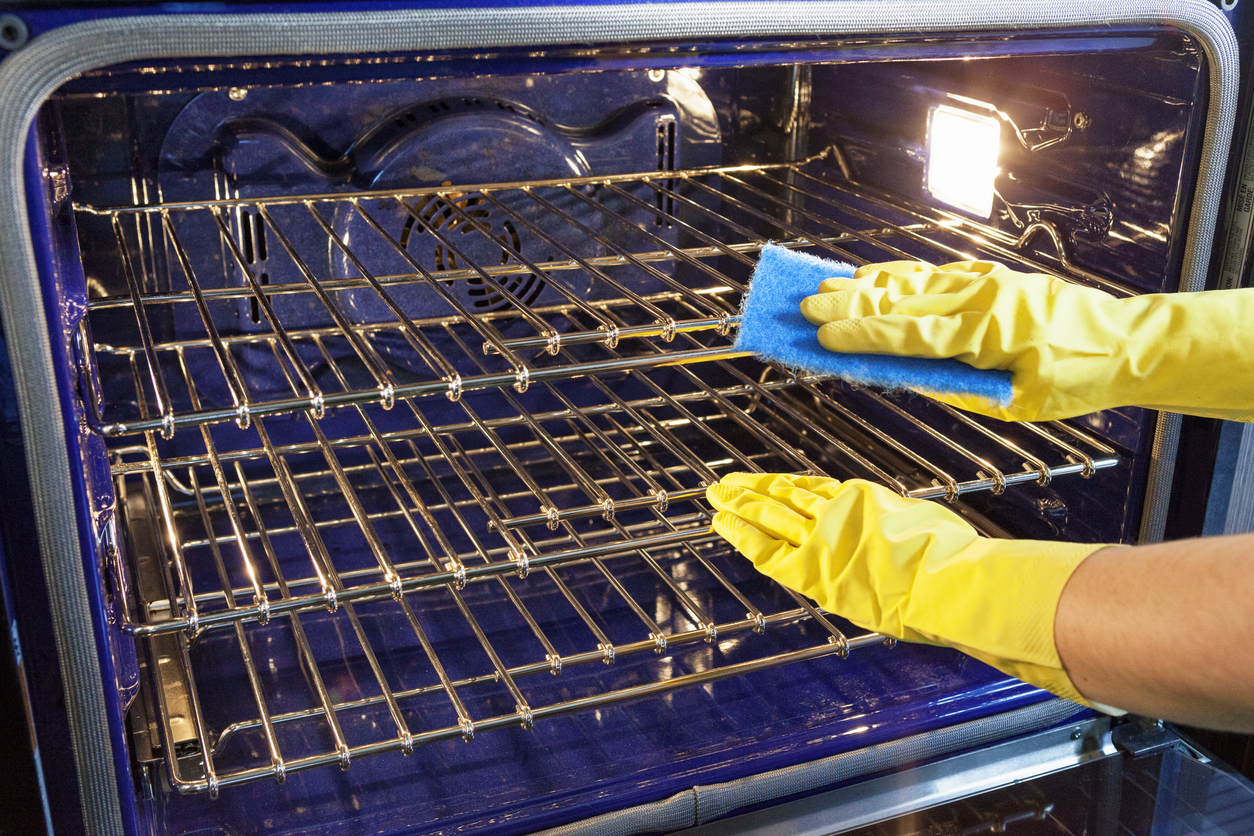
Without proper protection, cleaning the oven can be more than just messy. Oven cleaners are corrosive and if they come into contact with your skin, they can potentially cause burns or tissue damage. Always put on a pair of disposable or rubber gloves before spraying your oven with a cleaner or wiping it down after spraying. It’s also a good idea to protect your arms by wearing a long-sleeved shirt. Finally, be aware that oven cleaners can potentially lead to ulceration or corrosion of the eye tissue, which is why it’s good sense to don a pair of protective goggles when cleaning.
8. Work on a Car
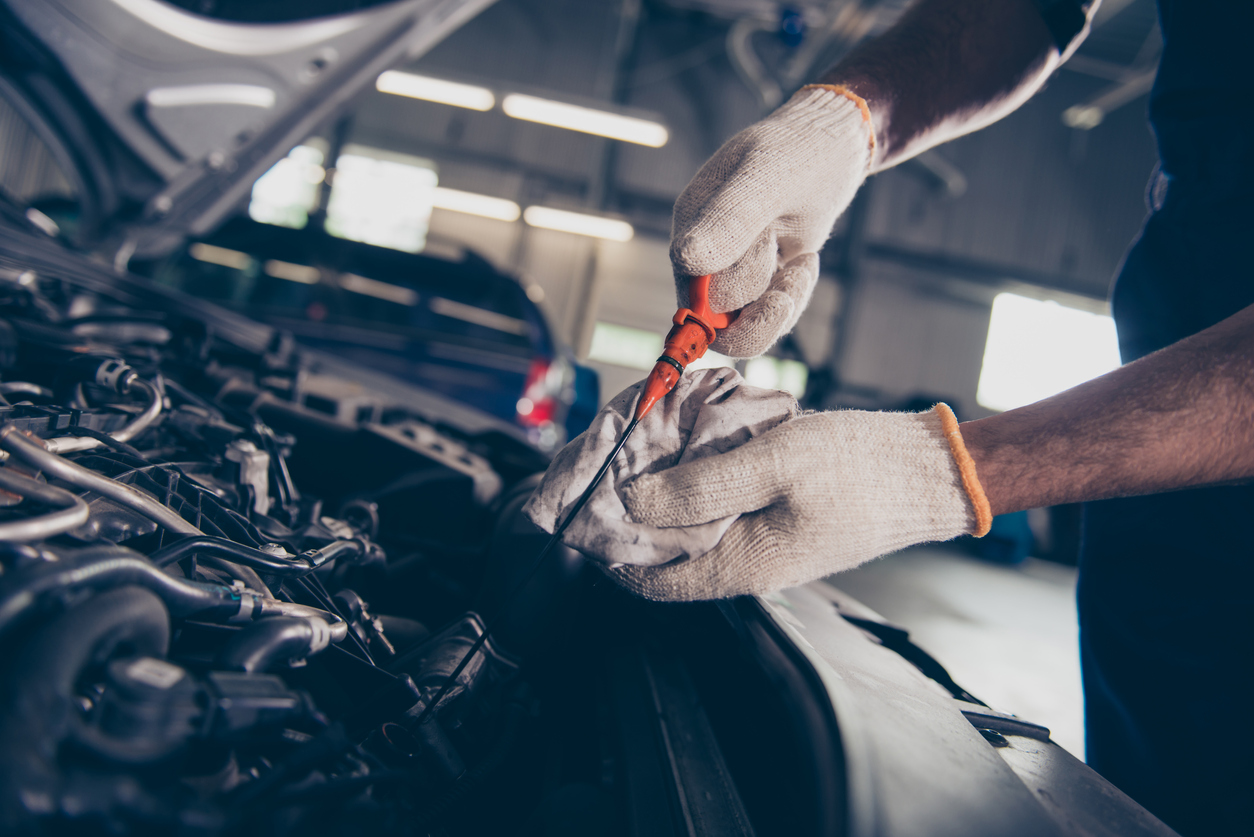
There are a lot of potential hazards associated with working on a car’s engine. You could potentially get burned, cut your hands on sharp metal, expose your skin to grease, gas, or other chemicals, or injure your hands or fingers in any number of other ways. For these reasons, it is important to wear a pair of mechanic gloves whenever you’re working on a car’s engine. There are a variety of material types to choose from, with nitrile rubber, leather, and cotton being among the most popular. We like these impact protection work gloves from Mechanix Wear Store.
RELATED: 13 Essential Tools for DIY Auto Maintenance
9. Paint
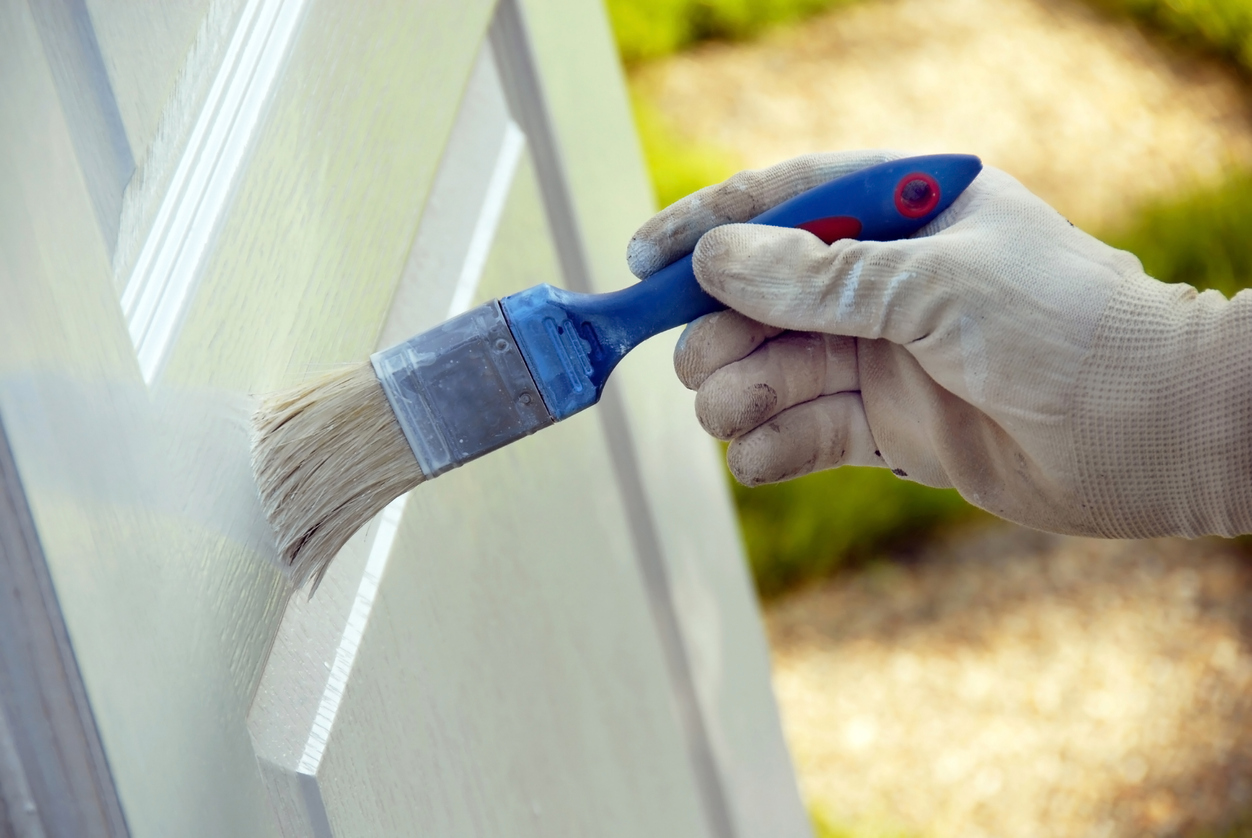
Painting—whether a wall or a canvas—can expose your hands to a range of chemicals that could make their way into your body systems through the skin on your hands. Wearing a pair of gloves will block these potentially harmful chemicals from seeping into your skin. Nitrile gloves, like these Med Pride powder-free nitrile gloves, are one of the best types of gloves to use while painting. They’ll help your hands remain flexible and allow a full range of motion. Moreover, they’ll also offer greater protection against chemicals than that offered by latex gloves, which can degrade quickly when they come into contact with some of these chemicals.
RELATED: Solved! Why Do Painters Wear White?
10. Clean up Broken Glass
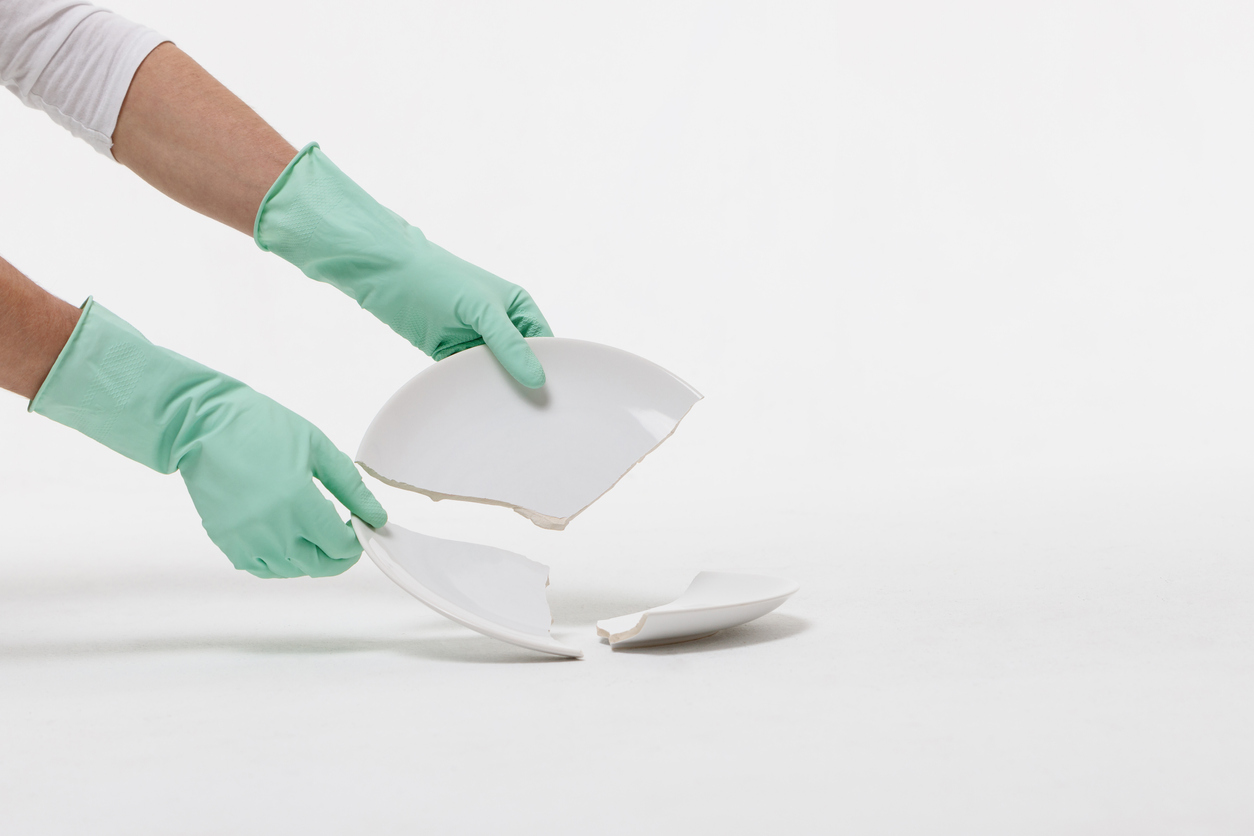
If you’ve ever dropped a wine glass, lightbulb, or glass bowl, you know that glass can shatter into lots of little, sharp pieces. Make sure you put on a pair of thick, puncture-resistant work gloves before cleaning up sharp glass shards. We like these Wells Lamont work gloves, which were the best bang for the buck pick in our guide to the best editor-tested work gloves. These will protect your hands from getting cut by razor-sharp edges.
11. Clean a Fish Tank
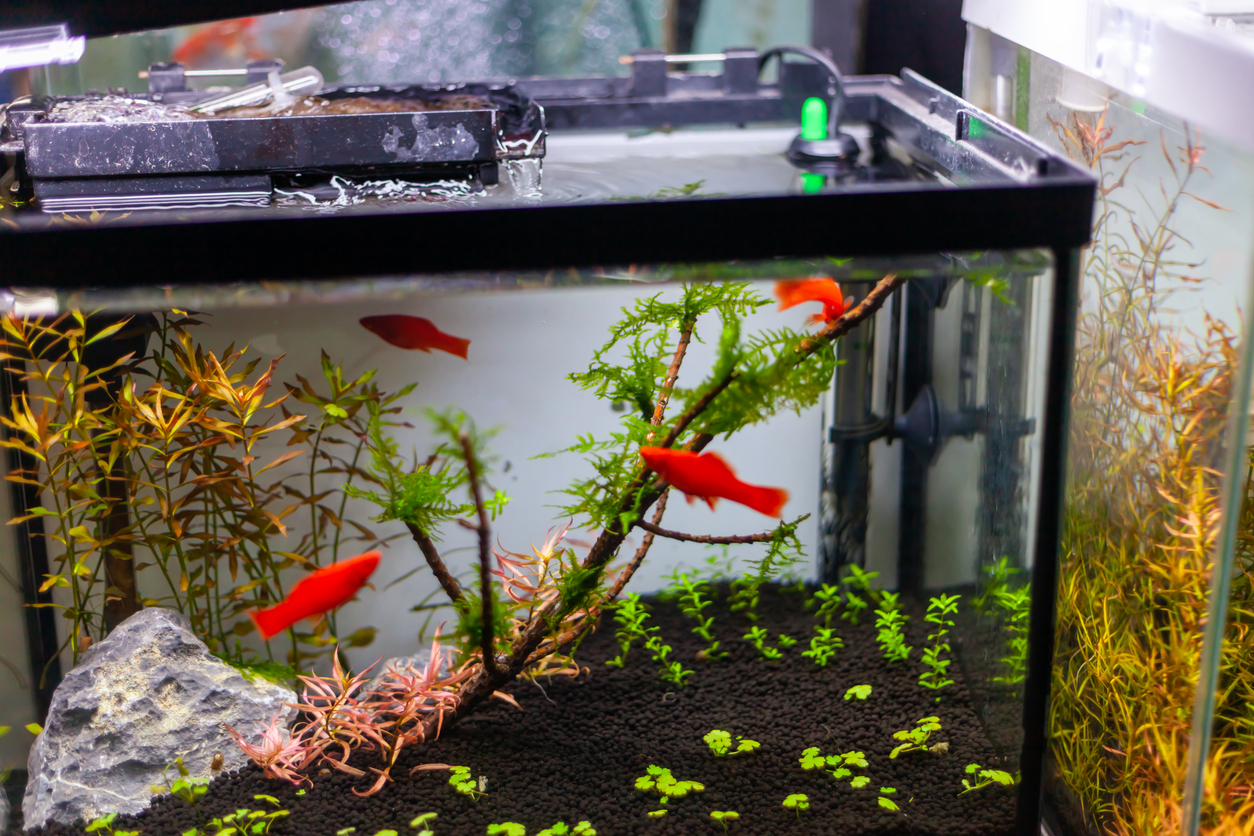
Regular tank cleaning and maintenance is an important job for fish owners. If you have a fish tank, make sure you put on a pair of gloves before you begin cleaning it. Without gloves, it is more likely for you to contact fish tuberculosis. This zoonotic disease—a fish disease that can be transmitted to humans—can cause an outbreak of sores and bumps on your extremities. It can also be more severe for the elderly and anyone with a compromised immune system. In addition to protecting you against potential infection, wearing gloves, like these YSLON extra-long rubber cleaning gloves, can also help keep your hands dry and protect your skin against developing eczema or a rash.
Gloves will also help protect your fish against contaminants on your hands. If you’re doing more delicate work or handling something fragile, reach for a pair of disposable nitrile gloves (powder-free and aquarium-safe). For other cleaning and maintenance tasks, consider a pair of long-sleeved aquarium gloves.
